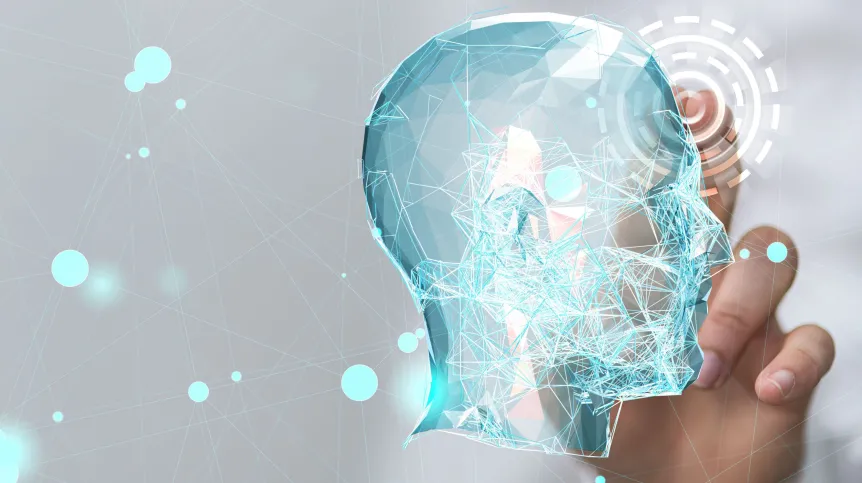
Scientists from the Gdańsk University of Technology are working on graph neural networks and plan to use them to recognize human emotions. Thanks to GNNs, for example, a computer will match the game to the user's experiences, a car will recommend rest at the right moment, and medical scanners will detect the pain of a person in a coma.
Scientists from the Gdańsk University of Technology point out that humans express emotions in various ways - with facial expressions, body posture, as well as physiological reactions of the body. As a result, they can be examined with different instruments - cameras can be used to analyse the human face and body, skin conductivity, heart or brain action can be measured.
Artificial neural networks that would distinguish between human emotions are already being studied. This field is called affective computing. In addition to pure computer science, it also draws from psychology, neurobiology, cognitive science, sociology, ethics.
Dr. Teresa Zawadzka from the Faculty of Electronics, Telecomunications and Informatics of the Gdańsk University of Technology and her team conduct research on the use of graph neural networks to read human emotions. As the name indicates, these networks are used to process data saved in the form of graphs.
According to researchers, graphs structures enable storage of various data and the relationship between them.
It is possible, for example, to record data related to emotions as well as the context of their occurrence, such as the time, place and stimulus that evoked a given emotion.
Meanwhile, the analysis of emotions can potentially be used in countless ways.
'There are plenty of needs and applications', emphasizes Dr. Zawadzka
'Let's start with sick people, e.g. patients in a coma, after a stroke, who are unable to express with facial expressions or verbally that they feel pain or anxiety. A properly conducted analysis of certain parameters of their health can show what emotions they are struggling with. Another example can be a car with focus sensors. Such a sensor, for example by analysing the movement of your eyes and body temperature, will conclude whether you are properly focused on the road or at risk of falling asleep, whether you should rest. And education? Imagine two children, one of them motivated by difficulties, the other completely discouraged by such difficulties. They both play the same educational game. If the appropriate sensor in a computer detects their emotions - excitement or boredom - the next task in the game will be adapted to their emotions and needs, full of challenges for the first child, relaxing for the second one. There are many such examples', explains the expert.
The relevant data, depending on the needs, can be collected by cameras, electronic bands and other sensors.
The researchers are working on a system that will allow to use the results of experiments conducted by various scientific teams. The problem is that the results are recorded in various ways.
'We are trying to integrate various experiments into a single dataset and ultimately create a system that will allow to record data in a uniform way. This would allow to easily search for experimental data in databases and use them to teach algorithms', explains Tomasz Wierciński, a student who collaborates with Dr. Zawadzka.
The next goal is to develop universal guidelines regarding the recording of data on emotions.
'The creation of such guidelines in the form of a tool, a simple system that scientists from other research centres dealing with affective computing would use, would allow to expand databases and teach algorithms more effectively. And the consequence of this would be a more effective recognition of emotions', emphasizes Dr. Zawadzka.
PAP - Science in Poland
mat/ agt/ kap/
tr. RL













